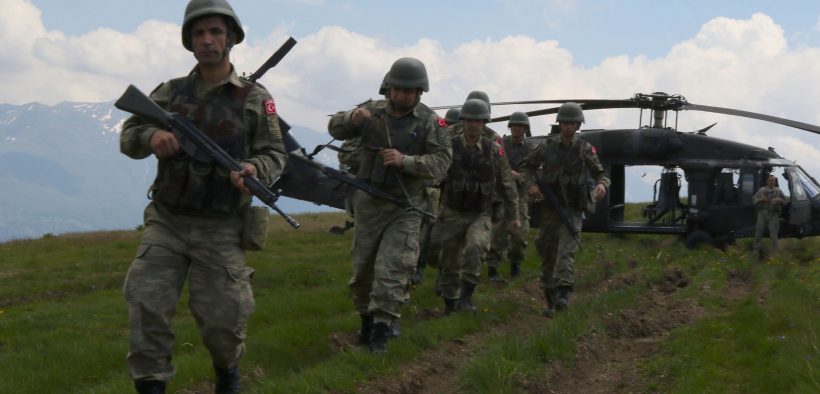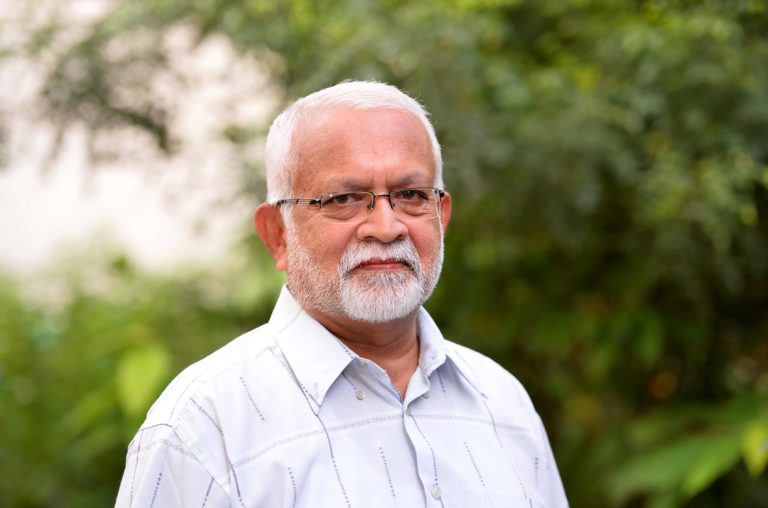How Turkey Scored the American Green Light to Occupy an Area in Syria the Size of Greece

If the U.S. policy in Syria in recent years promoted the Kurdish identity, it has now swung to the other extreme of stoking the fires of Turkish revanchism.
The extraordinary U.S. overture to Turkey regarding northern Syria resulted in a joint statement on October 17, the ramifications of which can be rated only in the fullness of time.
The U.S. objectives range from Trump’s compulsions in domestic politics to the future trajectory of the U.S. policies toward Syria and the impact of any U.S.-Turkish rapprochement on the geopolitics of the Syrian conflict.
Meanwhile, the U.S.-Turkish joint statement creates new uncertainties. The two countries have agreed on a set of principles—Turkey’s crucial status as a NATO power; security of Christian minorities in Syria; prevention of an ISIS surge; creation of a “safe zone” on Turkish-Syrian border; and a 120-hour ceasefire (“pause”) in Turkish military operations leading to a permanent halt, hopefully.
The devil lies in the details. Principally, there is no transparency regarding the future U.S. role in Syria. The Kurds and the U.S. military will withdraw from the 30-kilometer broad buffer zone. What thereafter? In the words of the U.S. Vice President Mike Pence at a press conference in Ankara on October 17:
“The Kurdish population in Syria, with which we have a strong relationship, will continue to endure. The United States will always be grateful for our partnership with SDF in defeating ISIS, but we recognize the importance and the value of a safe zone to create a buffer between Syria proper and the Kurdish population and… the Turkish border. And we’re going to be working very closely.”
To be sure, everything devolves upon the creation of the safe zone. Turkey envisages a zone stretching across the entire 440-kilometer border with Syria up to the Iraqi border, while the U.S. special envoy James Jeffrey remains non-committal, saying it is up to the “Russians and the Syrians in other areas of the northeast and in Manbij to the west of the Euphrates” to agree to Turkey’s maximalist stance.
Herein lies the rub. Jeffrey would know Ankara will never get its way with Moscow and Damascus. In fact, President Bashar al-Assad said in unequivocal terms to a high-level Russian delegation visiting Damascus on October 18, “At the current phase it is necessary to focus on putting an end to aggression and on the pullout of all Turkish, U.S. and other forces illegally present in Syrian territories.”
Is there daylight between Moscow and Damascus on this highly sensitive issue? Turkish President Recep Erdogan’s meeting with Russian President Vladimir Putin in Sochi on October 22 may provide an answer.
Clearly, the U.S. hopes to wrench Turkey from the Russian embrace. Moscow’s studied indifference toward the U.S.-Turkish cogitations betrays its uneasiness. Conceivably, Erdogan will expect Putin to take a holistic view, weighing carefully Russia’s flourishing and highly lucrative economic and military ties with Turkey and the imperative to preserve the momentum of the overall Russia-Turkey relationship.
But Trump has accommodated Erdogan’s top priority to create a safe zone and run it under Turkish supervision, which implies an open-ended Turkish military presence in a swath of Syrian territory as big as Greece or Nepal. Erdogan’s tone has already changed with regard to his expectations from Putin.
In a meaningful remark on October 19, he said, “In the area of the operation are forces of the [Syrian] regime under Russia’s protection. We will be tackling the issue with Mr. Putin.” Erdogan then added that in case he fails to “reach agreements on that issue [with Putin], Turkey will be implementing its own plans.”
If the U.S. policy in Syria in recent years promoted the Kurdish identity, it has now swung to the other extreme of stoking the fires of Turkish revanchism. This is potentially catastrophic for regional stability. The heart of the matter is that while Turkey’s concerns over terrorism and the refugee problem are legitimate, Operation Peace Spring has deeper moorings: Turkey’s ambitions as regional power and its will to correct the perceived injustice of territorial losses incurred during the disintegration of the Ottoman Empire.
The ultra-nationalistic Turkish commentator (and staunch supporter of Erdogan) İbrahim Karagül wrote on October 12 in the pro-government daily Yeni Safak:
“Turkey once revived again the millennium-old political history on Anatolian territory. It took action with a mission that will carry the legacy of the Seljuks, the Ottomans, the Republic of Turkey to the next stage… It is not possible to set an equation in this region by excluding Turkey—it will not happen. A map cannot be drawn that excludes Turkey—it will not happen. A power cannot be established without Turkey—it will not happen. Throughout history, both the rise and fall of this country has altered the region… the mind in Turkey is now a regional mind, a regional conscience, a regional identity. President Erdogan is the pioneer, the bearer of that political legacy from the Seljuks, the Ottomans, and the Turkish Republic to the future.”
Trump is unlikely to pay attention to the irredentist instincts in Turkish regional policies. Trump’s immediate concerns are to please the evangelical Christian constituency in the U.S. and silence his critics who allege that he threw the Kurds under the bus or that an ISIS resurgence is imminent. But there is no way the U.S. can deliver on the tall promises made in the joint statement.
Besides, the Kurds have influential friends in the Pentagon. (See the article by General Joseph Votel, who was the chief of the U.S. Central Command until recently, and Elizabeth Dent, titled “The Danger of Abandoning Our Partners.”) Nonetheless, the main outcome will be that Turkey feels it has Western support for its long-term occupation of Syrian territory.
All in all, it’s a “win-win” for Erdogan insofar as he got what he wanted—U.S. political and diplomatic support for “the kind of long-term buffer zone that will ensure peace and stability in the region,” to borrow the loaded words of Vice President Pence. A Turkish withdrawal from Syrian territory can now be virtually ruled out. Secretary of State Mike Pompeo added at the press conference in Ankara on October 17 that there is “a great deal of work to do in the region. There’s lots of challenges that remain.”
Pompeo said Erdogan’s “decision… to work alongside President Trump… will be one that I think will benefit Turkey a great deal.” Arguably, the U.S. expects Turkey’s cooperation to strengthen its strategy in Syria (and Iraq) where it seeks to contain Iran’s influence. From Ankara, Pompeo traveled to Jerusalem to brief Israeli Prime Minister Benjamin Netanyahu. Israel indeed has been a staunch ally of “mountain Kurds” in modern history.
This article was produced in partnership by Indian Punchline and Globetrotter, a project of the Independent Media Institute.















